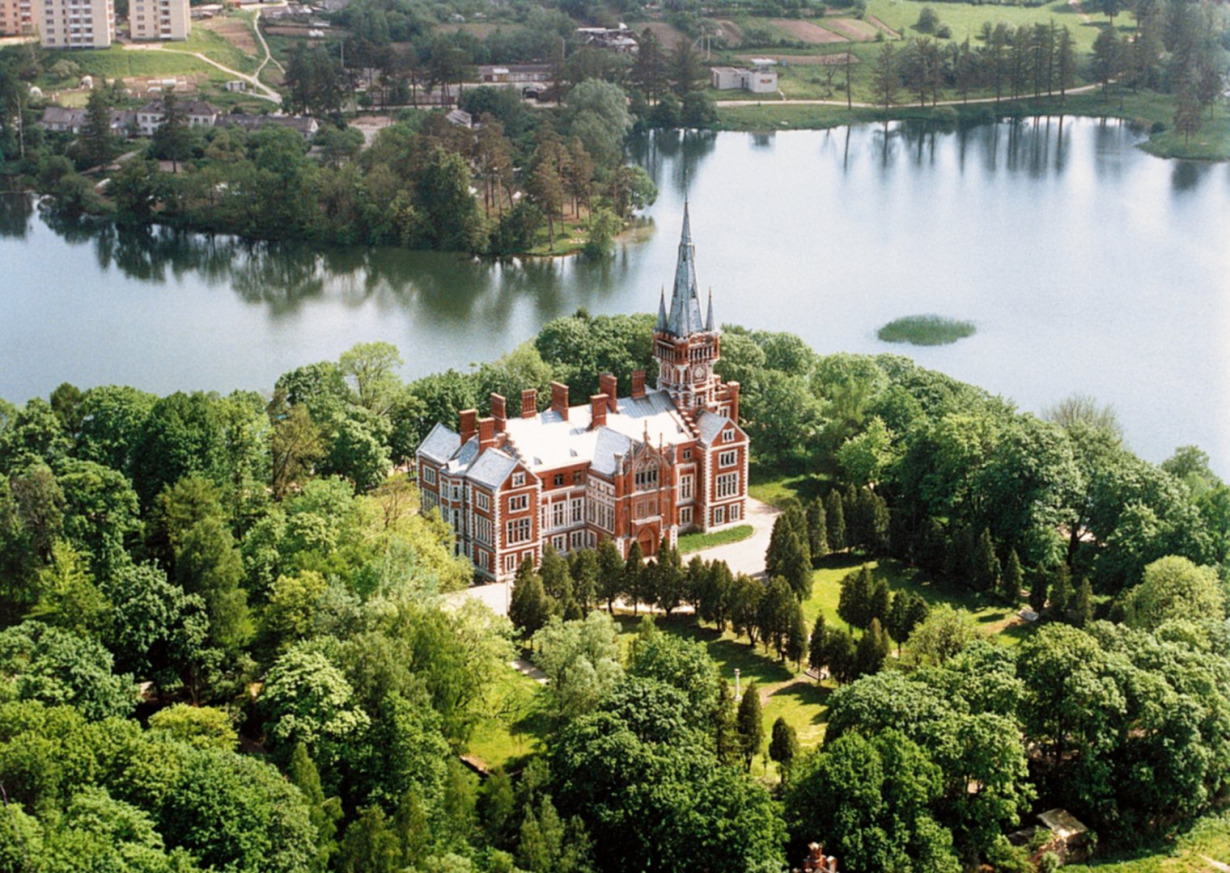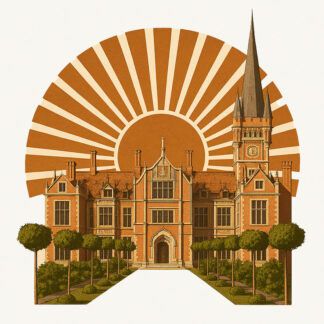EU Funding Secures Lentvaris Manor as Mind University’s Home
Lentvaris Manor House, a Lithuanian historical treasure, stands as a testament to the country’s rich and tumultuous history. Its journey through time, particularly during the Soviet era, highlights its resilience and the crucial need for its restoration. The Lentvaris Manor House has witnessed the ebb and flow of Lithuania’s history.
Remarkably surviving the ravages of war, the manor maintained its grandeur until the Soviet era brought drastic changes. The establishment of the Lentvaris Carpet Factory within its walls marked a period of industrial growth, yet this era also saw the manor’s surroundings suffer environmental damage due to farming practices and the destruction of stone bridges in the park.
In a significant development for cultural and educational progress, the historic Lentvaris Manor has received substantial funding from the European Union, marking the beginning of a new chapter in its storied existence. This funding, totaling €673,491.18 directly requested for the project, will enable the comprehensive restoration of this architectural gem, transforming it into a hub of learning and community engagement as the future home of Mind University.
The project’s primary focus is to address the deteriorating condition of Lentvaris Manor and enhance its accessibility to the public. Planned works include refurbishing the tower, roof, a portion of the facades and restoring windows and external doors. Once completed, visitors, including children, students, pensioners, and adults, will have access to the manor’s tower and its surroundings, which will feature exhibitions showcasing the manor’s history, architecture, and former residents.
Mind University, poised to take residence in the restored manor, represents a shift from traditional educational models. Its vision is to foster holistic growth and personal development, challenging the conventional norms that emphasize standard knowledge at the expense of creativity and adaptability. The university plans to offer courses in mindfulness, astrology, nutrition, Web3, and AI, promoting a balanced life encompassing wealth, relationships, health, and personal fulfillment.
The restoration and establishment of Mind University at Lentvaris Manor is a collaborative endeavor. Teams comprising over 50 professionals, including construction experts, web3 developers, 3D specialists, marketing professionals, and blockchain enthusiasts, are working in unison.
Their collective effort is not only to restore the manor but also to create an immersive educational experience, a unique museum, and a community-driven governance model for the university. The project of restoring Lentvaris Manor is expected to significantly increase visits to cultural and natural heritage sites, with an anticipated 13,700 visits per year. It is also drawing investments for cultural heritage adaptations, further highlighting its cultural and touristic importance.
Mind University’s approach is encapsulated by the sentiment “School is broken” from the most-watched Ted Talk of all time by Robinson K. (2006). It aims to empower individuals to co-own and co-create in their educational journey, offering a fresh perspective on learning. The university is dedicated to equipping individuals with vital life skills, ensuring that the legacy of Lentvaris Manor continues as a beacon of learning and personal growth.
Despite its challenging circumstances during Soviet rule, the Lentvaris Manor House became a beacon of innovation and a symbol of human resilience. The transformation of the manor into a carpet factory in 1957 was a significant event. It not only saved the building from neglect but also turned it into a productive enterprise. Factory workers introduced numerous technical improvements, saving considerable amounts in production costs. More poignantly, the factory became a place of employment for Lithuanians returning from exile, weaving together stories of survival and hope.
While the factory’s establishment brought economic benefits, it also led to environmental challenges. The manor’s outbuildings, repurposed for farming, experienced a series of problems, including a fire and significant damage. The once-pristine park saw deforestation and pollution, with rare trees being cut down and the landscape marred by domestic waste.
The restoration of Lentvaris Manor House is more than a cultural project; it’s a journey towards reclaiming a significant part of Lithuania’s heritage. The manor’s history, marked by resilience amidst adversity, makes its restoration crucial. It symbolizes the country’s enduring spirit and its commitment to preserving historical treasures for future generations.
It is very easy to bring everything to the ground and start easily with new buildings. However, the Mind University team and creators want to teach people about resilience and the importance of restoration, education, and culture. It is a difficult task, but with the funding from EU, it might be a little easier.




